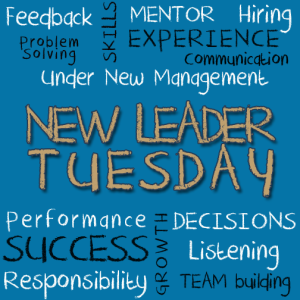 Accountability. Tattoo it on your forearm. Imprint it on your brain. Repeat it three times every morning. And then assert it all day long.
Accountability. Tattoo it on your forearm. Imprint it on your brain. Repeat it three times every morning. And then assert it all day long.
Peel away the layers and issues surrounding poor performing teams and you will find accountability missing from the environment. Every time.
Conversely, examine the culture of teams or functional groups that regularly hit it out of the park, and you will find accountability for actions, efforts and outcomes present as part of the collective and individual member consciousness.
Accountability starts and ends with you as leader. As a teacher. As an enforcer. As the judge and jury
7 Ideas for Creating an Accountable Culture on Your Team:
1. Model the behavior. Your “do must match your tell.” Forget to hold yourself accountable to commitments or actions, and you’ve created fertile ground for others to follow suit.
2. Clearly define and describe the end destination. Set clear group and individual expectations for results. While seemingly obvious, many in leadership roles fail to establish clarity around goals and targets. Leaders might be pointing people in a direction, but if they are not adequately ensuring that everyone understands the end destination, the team and members will end up somewhere. Somewhere is never the right destination.
3. Melt the participation trophies. Effort is nice, but results count.
4. Socialize accountability. Share individual and group targets, progress and results in every operations meeting and frequently in one-on-one and team encounters. Accountability is your mantra.
5. Deal with lack of accountability fairly, openly and expeditiously. We all know that “stuff happens” in the workplace to occasionally derail our progress towards our goals. A project team might uncover an unexpected technical difficulty or, an individual performer might run into an issue that needs outside input. When the best laid plans meet Murphy and his darned law, seek clarity, expect an action plan and reset the timing and target as needed. If this becomes a chronic issue with a team or individual, look deeper.
6. No “Jordan Rules.” Don’t create double standards for performance. The world of sports is famous for suggesting that star performers are treated one way by officials, while the rest of the players operate under a more stringent set of rules. We do the same in the workplace with our star performers or our chronic under-performers. Both extremes are wrong. One set of rules, please.
7. Success begets opportunity and more success. Reward high performance with more responsibility and greater accountability. Great performers love to deliver great results…it’s their nature. Feed this machine and offer those who live and model accountability and achievement more opportunities to deliver.
The Bottom-Line for Now:
Establishing, ensuring and living accountability is an inviolable rule of leadership and management success. There’s no gray area here.
—
More Professional Development Reads from Art Petty:
Don’t miss the next Leadership Caffeine-Newsletter! Register here
For more ideas on professional development-one sound bite at a time, check out Art’s latest book: Leadership Caffeine-Ideas to Energize Your Professional Development.
New to leading or responsible for first time leader’s on your team? Subscribe to Art’s New Leader’s e-News.
 An ideal book for anyone starting out in leadership: Practical Lessons in Leadership by Art Petty and Rich Petro.
An ideal book for anyone starting out in leadership: Practical Lessons in Leadership by Art Petty and Rich Petro.
